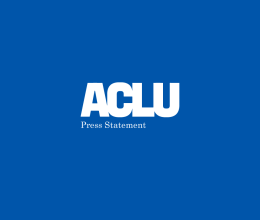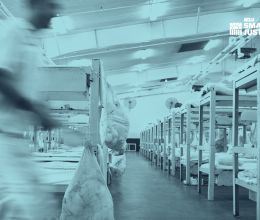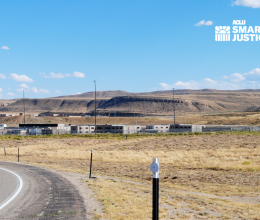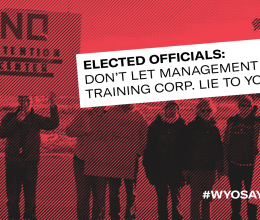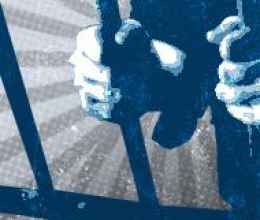
By Sabrina King, ACLU of Wyoming Policy Director
This piece originally appeard in the June 9, 2017 edition of the Casper Star Tribune.
As the old adage goes, if it sounds too good to be true, it probably is. This is particularly true when a private prison company comes into a state making big promises – and delivering nothing but trouble.
As reports have surfaced that Wyoming is considering contracting with CoreCivic to address the issue of a crumbing state prison, the company has stepped up its public relations campaign to convince Wyomingites that not only will the prison be safer and more secure, but we’ll save money to boot. Nothing could be further from the truth.
Private prisons depend on making a profit in order to stay in business. While CoreCivic may “lease” the facility to the Department of Corrections for operation, it is highly likely any contract with the state would include an “occupancy rate” provision, requiring a certain number of inmates be in the prison at all times. After all, real estate isn’t worth much if it is empty. A contract with CoreCivic may very well mean that criminal justice reform and the end of mass incarceration in this state would become expensive – if not impossible – to accomplish.
The promise of saving the state money is a hollow one at best and a dishonest one at worst. The only way to reduce state spending on prisons is to reform the criminal justice system and reduce the number of people sent to prison. Anyone flying in and promising a magical solution – particularly a corporation whose existence is based on extracting money from taxpayers – should be regarded with extreme skepticismIFrame
CoreCivic is promising a safer prison system for inmates and staff – but that’s inconsistent with the record. It is ironic that CoreCivic would uphold the North Fork Correctional Facility in Oklahoma as an example of a facility where corrections officers can do their jobs with “peace of mind.” Just this past April a fight broke out in the facility, leaving seven inmates injured and putting corrections officers in danger as they broke up the fight. Less than a month later, in May, at another Oklahoma facility owned by CoreCivic, a fight broke out, this time resulting in five staff being hospitalized.
But there is more. In Kansas, CoreCivic is being sued for illegally taping hundreds of confidential inmate-lawyer conversations. At its Leavenworth facility, the company went to great lengths to hide its practice of triple-bunking inmates, changing only after a federal investigation caught them in the act. In Idaho, they are being sued by inmates stabbed and beaten in a facility so understaffed it allowed gangs to flourish; not the first time the company has been sued in that state, by the ACLU and others. In fact, the company now known as CoreCivic used to be Corrections Corporation of America – a name so associated with private prison abuses the company had to rebrand. A private prison by any other name is still just that: a private prison.
Rather than solely looking at how to deal with crumbling infrastructure, we should look at how we got here in the first place. We should ask why comprehensive criminal justice reform has failed at the legislative level for several years in a row. We should ask why Native Americans and black people are incarcerated disproportionately. And we should ask why our incarceration rate has nearly quadrupled in the past forty years, despite crime rates dropping by over half.
At the end of the day, we need to ask ourselves what we believe the criminal justice system is for. Mass incarceration tears apart families, disproportionately affects people and communities of color, decimates state budgets, and doesn’t lead to increased public safety. Rather than looking to a company like CoreCivic to build and maintain a prison that has to be filled with “criminals,” we should be looking to ourselves for solutions to Wyoming’s increasing prison population and overloaded criminal justice system. The solution lies in reforming our criminal justice system.
